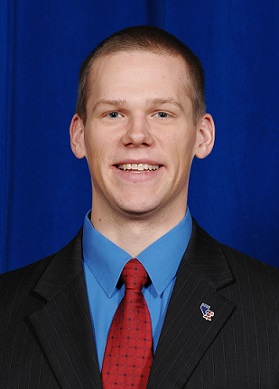SB241 provides only a façade of reform
 (Victor Joecks of NPRI) – Do you remember in January when Gov. Brian Sandoval gave his State of the State address? Along with calling for the largest tax increase in Nevada history, he promised “to pass the right reforms of our collective bargaining laws. We must ensure that districts are spending money where it is needed most and that a reform on educational investment is not overshadowed by employee compensation models.”
(Victor Joecks of NPRI) – Do you remember in January when Gov. Brian Sandoval gave his State of the State address? Along with calling for the largest tax increase in Nevada history, he promised “to pass the right reforms of our collective bargaining laws. We must ensure that districts are spending money where it is needed most and that a reform on educational investment is not overshadowed by employee compensation models.”
Well, it’s day 113 of the 120-day session and no substantial collective bargaining reform has even made it out of committee.
There has been movement on minor reforms, like protecting ending fund balances in SB168, but the collective bargaining bill with the most hype has been SB241, introduced by Sen. Majority Leader Michael Roberson, which has already passed both houses.
When you first read look at SB241, it sounds like it’s a substantive reform, but when you examine the details, you’ll find it makes only cosmetic changes.
First, is the section dealing with union leave. Union leave time is where government pays union workers to work for their union. SB241 requires unions to reimburse government agencies for union leave time or to offset the leave time by the value of concessions made by the employee organization in the negotiation of the collective bargaining agreement. That’s what unions already claim happens with union leave time, so while this section sounds good, it will change nothing in practice.
Next, the bill limits but still allows government employees to receive compensation increases after their contract expires and increases the number of mandatory bargaining session from four to eight.
Then it says that any administrator making over $120,000 in salary isn’t allowed to bargain collectively. That sounds nice, because the $120,000 is in salary, not total compensation, that only applies to 37 employees in the Clark County School District and 27 employees in the Washoe County School District, some of whom already can’t collectively bargaining. And because the $120,000 increases with inflation, it will include only a handful of more employees in the upcoming years.
There are a couple of good provisions. Principals are at-will for their first three years of employment and have to reapply for their positions every five years, but that’s it.
There’s nothing in SB241 about teachers, which is the most important school controlled-factor in student achievement, or changing outdated employee compensation models, like Sandoval promised.
There is still time for the legislature to pass substantial reforms, like AB182 or AB280, but the clock is ticking. Without those reforms, calls for higher taxes will just be shoveling more money into the same broken system.
A version of this column was originally published at NPRI’s website.
Victor Joecks is executive vice president of the Nevada Policy Research Institute, a non-profit, non-partisan think tank that produces and shares ideas and information that empowers people. For more information, please visit www.NPRI.org.


Facebook
Twitter
Pinterest
RSS